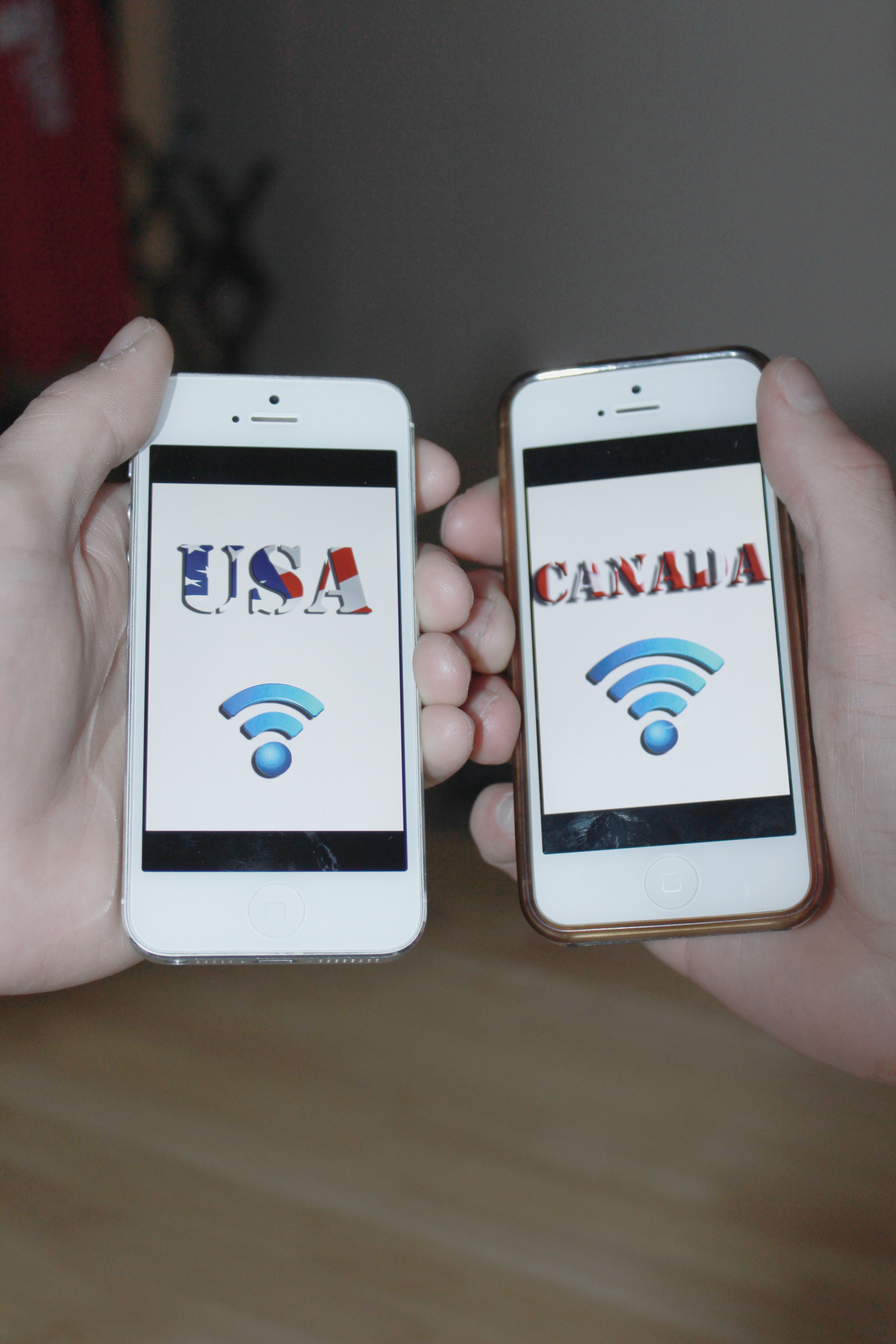Canada’s wireless outperforms US


Canada’s wireless speed is reportedly much faster than our southern neighbours.
A new study, conducted by an online computer magazine, PC magazine, investigated the speed and reliability of Canadian courier networks, comparing our “big three” (Rogers, Bell and Telus) to the United State’s “big four” (AT&T, T-Mobile, Verizon and Sprint).
The study found that while Americans get better nation-wide coverage, Canadians are able to download, upload and surf the web with greater speed.
“There’s a lot of conflicting claims about wireless network quality and all of your big three carriers have been saying that they’re the best,” said Sascha Segan, the author of the study. “But they never really reveal what research that is based on and you don’t know what to trust.”
Segen explained to The Cord that his study was conducted so as to give an independent voice to a consumer who otherwise would not know which Canadian mobile service provider to commit to.
His consumer reports often give an impartial perspective to the user, telling them which products they should and shouldn’t buy. For this particular study, he and his team tested Long Term Evolution (LTE) speeds, igh-Speed Packet Access (ASPA) speeds and nation wide coverage. They loaded field-test software onto two Android phones, ran them all day, and drove to 13 Canadian metro areas: Toronto, Montreal, Edmonton, Calgary, and Vancouver among neighbouring cities.
They also uploaded and downloaded files through the Internet, downloaded a simulated webpage and analyzed the amount of time it took to return from servers.
Their results? Apparently Canada’s wireless speed is fast – really fast.
“We found that in the largest metro areas, the Canadian networks are generally very, very fast.” Segen explained. “You have excellent LTE speeds [and] you have very good HSPA speeds.”
Rogers notably delivered download speed higher than 8 megabits per second, with more than 90 per cent of the time in the cities visited.
Segen also found that Rogers and Bell both have a comparable spectrum of 26,000 megahertz, which has built fast LTE networks in highly-populated cities. He explained that the spectrum goes for relatively short distances so it usually works better for inner-city use.
This explains why network speeds are quicker in urban areas and tend to be slower in rural ones.
Wireless services in the U.S. allegedly run much slower than Canadians because their networks tend to be more congested.
“I don’t really have a ‘why’,” Segen noted. “That’s one [question] where I’m going to just state the observation that our networks are slower than yours.”
However, while Canada reportedly has a faster wireless network, U.S mobile providers cover more regions and distances.
Of America’s AT&T, Verizon, T-Mobile, and Sprint, each carrier has more than 30 million customers.
“One of those companies could have more than the entire population of Canada,” he laughed.
North of the border, Canada’s Bell, Rogers and Telus split more than 90 per cent of wireless subscribers together, each posing their own strengths and weaknesses.
Bell Canada, who shares their tower with Telus, currently leads the nation in its LTE coverage. Telus Mobility reportedly had lower network scores as they experienced trouble “locking on to the LTE network.” Telus, however, proved to be extremely reliable in western Canada.
As for Rogers, they are considered to be Canada’s “download speed leader.” The carrier’s deployment of 2,600 megahertz LTE gives the company the fastest speeds in urban areas. Roger’s performed exceptionally well in Quebec.
“Rogers especially, just has spectacular coverage,” Segen emphasized.
When told about the recent study, some individuals were surprised about Canada’s favourable results.
“I don’t really know if I can believe that,” explained Dylan Campbell, a student at the University of Waterloo. “For years I’ve been complaining about the speed of the data on my phone and it just seems that more people are complaining about wireless connections than praising it.”
“If [Canada’s] is considered fast, I don’t even want to think about what it’s like down south,” he added.
This coming January, Canadian telecom companies will have the opportunity to participate in a wireless auction. The auction is for 700,000 megahertz in wireless airwaves, given to the companies most deserving.
Segen believed that the results from his study will be brought up during this auction.
“This is a very prime spectrum and the companies that get it will get very positioned for the next ten years,” he said. “So I wouldn’t be surprised if you find all of the polls using different aspects of our study to their case for why they should get more airwaves from the government.”

